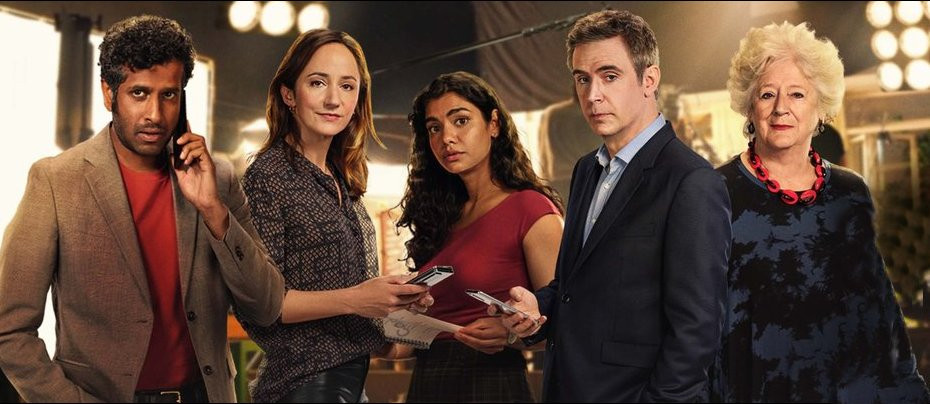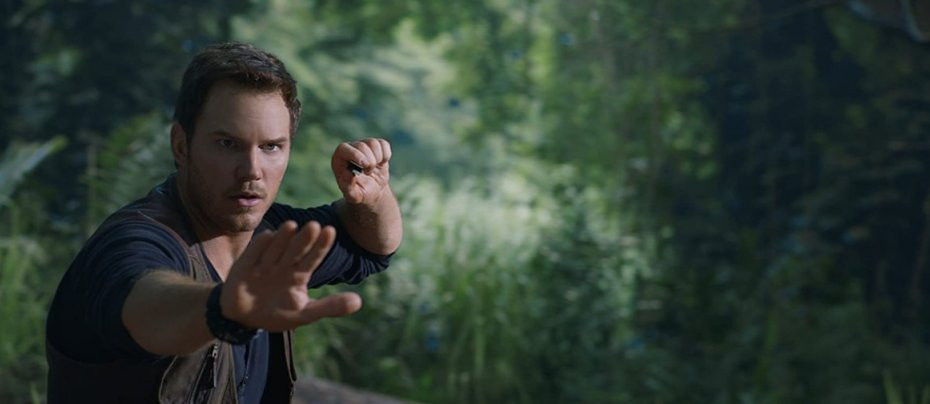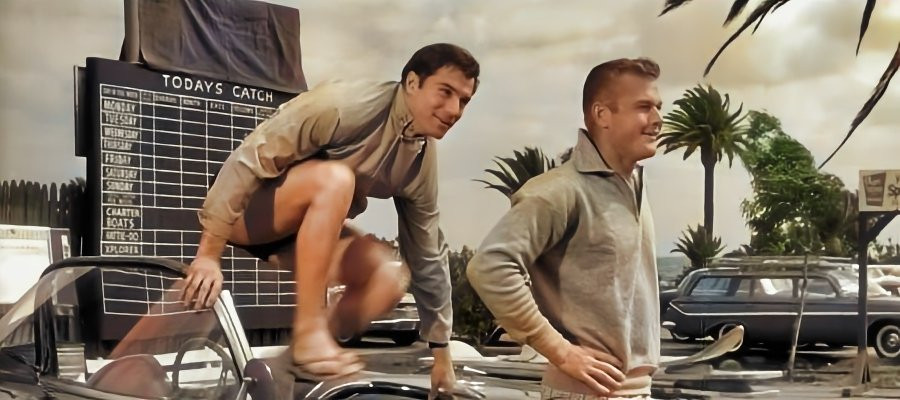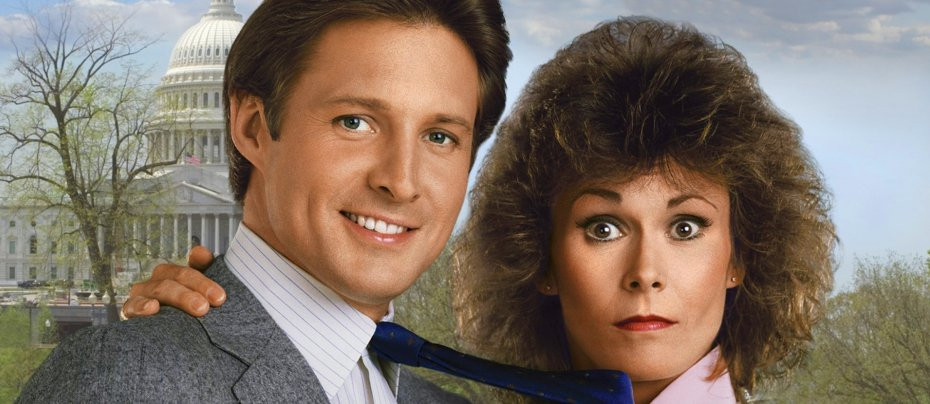
Reacher
2022 - United StatesThe success of Amazon's ‘Reacher’ is due almost entirely to the perfect casting of Alan Ritchson
Review by John Winterson Richards
This television incarnation of Jack Reacher represents the character coming full circle because it is, indirectly, to television that owes his inception. James Grant had a good job with Granada and was living a comfortable middle-class existence on it until he was made redundant as a result of corporate restructuring in 1995. In order to carry on funding that existence he started writing pulp novels with Reacher as the protagonist under the pen name Lee Child.
The irony is that it was therefore to meet his own family and financial commitments that Grant tapped into the widespread male fantasy of having no commitments at all. The psychology of this fantasy, and its popularity among middle-aged, middle-class family men in particular, requires little explanation: we all long for what we do not have.
It cannot be stressed enough that this is a fantasy. In practice it would be very difficult to live like Reacher, and, even if one could, it would probably not be for long. Indeed, most of the men who read the Reacher novels, or watch the films or the television show based on them, would really not want to be Jack Reacher. It is simply that, surrounded by the cares and responsibilities of modern life, they sometimes dream of how blissful it would be to take a break from them all for a little while. That is what the entertainment industry, in all its forms, offers them, a break for a little while - and a glimpse of a path not taken.
Jack Reacher is apparently free of all care and responsibilities. Although not a religious man or any sort of philosopher, he has apparently achieved the religious and philosophical ideal of living without fear or desire. He has nothing to lose and there is nothing he wishes to gain, so no one has any power over him, because they cannot threaten him or bribe him. He has almost literally no possessions except the clothes in which he stands. When they get dirty, he buys new ones from thrift stores (a bit wasteful it seems, the novels first being written in a less environmentally conscious decade). He has no family except a brother with whom he has lost touch. He travels where he wants as the mood takes him.
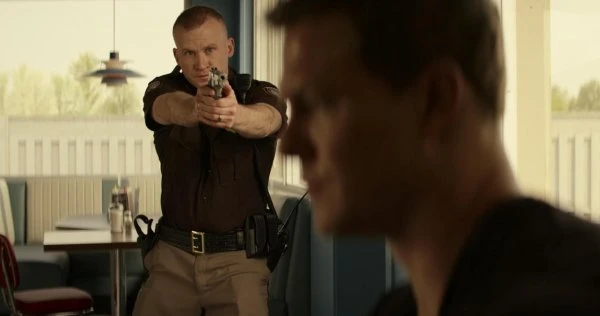
The fact that no one else has power over him makes him powerful. So does the fact that the man is built like a Tiger Tank, and is well-trained, highly skilled, and very experienced in armed and unarmed combat. This means that, in addition to his lack of fear of loss, he has no physical fear beyond what is necessary to maintain a healthy sense of self-preservation. He is therefore supremely self-confident and independent in every sense of the word.
He seems to be an updating of a stock character familiar from Westerns, the Mysterious Stranger who rides into town from nowhere, solves all the town's problems - violently - and then, this is the important bit, rides off again into the sunset. As such, there is something anachronistic about him. Could such a man exist in the 21st Century? There is, sadly, no shortage of homeless people, but theirs is far from a life of commitment free travel, quite the opposite. Grant gets around that by giving Reacher a military pension. Yet it is hard to deny that Reacher is still basically a vagrant - even if Reacher does deny it and prefers the description "hobo," with its slightly more romantic connotations.
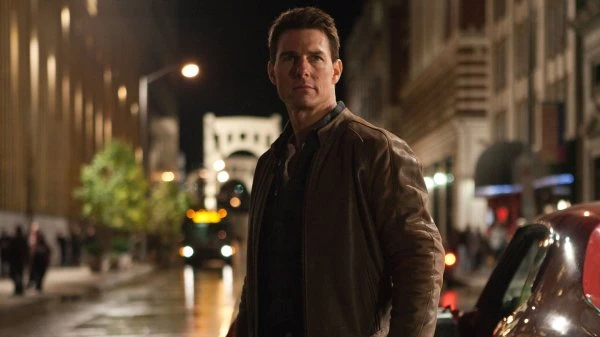
The Reacher novels had already been adapted into two fairly successful films starring Tom Cruise. They were not bad films in themselves but hardcore fans of the books were unhappy with them because Reacher's bulk is integral to his character and it is fair to say that, for all his undoubted excellence as an actor, Cruise is not exactly famous for his bulk. Now a smaller man can actually be more dangerous than a bigger one, a point well made in one of the best fight scenes in Reacher, but he has to be more aggressive, and in the Cruise films that changed the whole dynamic of the character, who in the books is able to rely on his domineering presence alone to intimidate and can therefore be fairly relaxed otherwise.
Amazon's television adaptation marks a return to that aspect of the character from the books. The first time we meet him, he forces a man abusing his wife to back down just by looking at him. It is a perfect John Wayne or Clint Eastwood moment.
The success of Amazon's Reacher is due almost entirely to the perfect casting of Alan Ritchson in the title role. He in fact a mere six foot two, clever use of camera angles implying he might be book Reacher's official six five, but he exudes the casual self-assurance of a man it would be foolish to cross.
After that relatively passive introduction, he has no shortage of more active opportunities to prove why. He is wholly credible when beating up multiple opponents at once. There is no fuss about it, no showing off, no fancy martial arts. He hits bad guys very hard and they go down. Sometimes he gets hit in return but he knows how to take a blow and carries on hitting. Something similar happens when he eventually gets a gun in his hand and starts killing people.
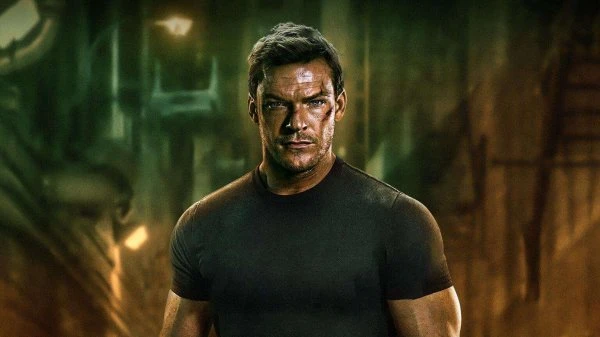
The fight scenes are exemplary - and for the most part convincing, in spite of some less realistic moments - but it all comes so easily to Reacher that one begins to wonder if there is something psychopathic about him. If there are no real moral dilemmas, because everyone he hits or shoots or strangles deserves it, he certainly goes well beyond necessary force in self-defence. He is sometimes strangely open about his killings, more than he ought to be when talking to police officers, but there are other occasions when he hides the full truth, implying his awareness of criminal culpability.
He could very easily degenerate into little more than a Terminator type killing machine, but Ritchson gradually reveals more depth to the character. Beneath the brutish exterior, Reacher is actually very intelligent: he has a great eye for detail, a superb memory, and powers of deduction Holmes might envy. This, combined with some awkwardness in his social interactions, suggests he might be somewhere on the autism spectrum. However, although his friendship is not given lightly, that is only because he takes it seriously and it means more when he finally trusts someone. As he becomes more comfortable, he shows more of a rather charming sense of humour. It is a widely held opinion that Ritchson makes him far more likeable than he is in the books.
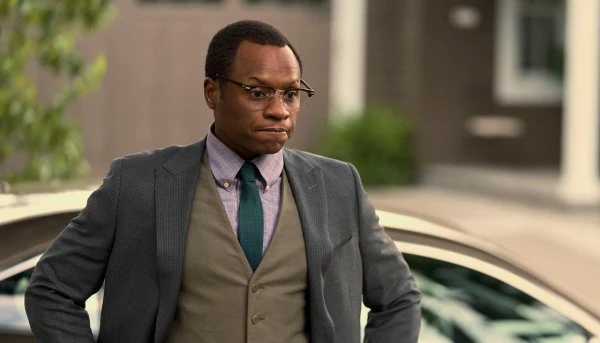
There also seems to have been a conscious effort on the part of the adaptation to make Reacher seem less of a loner by emphasising his role as part of a triumvirate that also includes two honest members of the local police force of a Georgia town on which he bursts like a tornado. Malcolm Goodwin brings multiple layers to his role as a tightly wound, Harvard educated Chief of Detectives. Willa Fitzgerald manages to rise above cliche as in the less well-drawn part of a young uniformed officer who rather throws herself in Reacher's way as his - temporary - love interest (in the books, the character is, predictably, more into commitment-free casual sex). Both characters are given satisfying character arcs, but it seems a pity that the nature of the Reacher stories means they are unlikely to play much of a role, if any, in future seasons of Reacher, because the three actors had chemistry and built a good team dynamic.
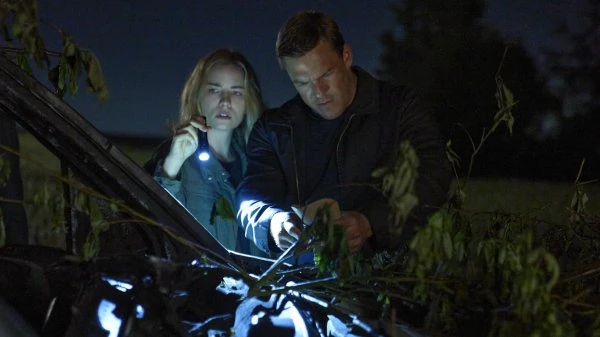
Among the rest of the cast, the only familiar faces are the veteran Bruce McGill as the corrupt Mayor and the fast-rising Harvey Guillen (What We Do in the Shadows, Puss in Boots: The Last Wish) as the jolly young Coroner, but everyone does their jobs efficiently.
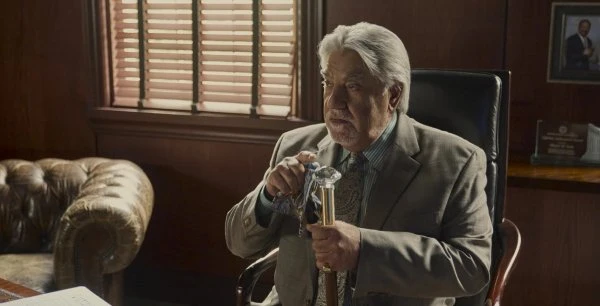
While the characterisation is therefore solid, it has to be said that the plotting is frankly risible. The whole story depends on two people who have not seen each other in years ending up in the same small town for completely unrelated reasons. After that, there are so many plot holes and conveniences and inconsistencies that a drinking game in which anyone downs a shot after thinking "That seems unlikely" or "That makes no sense" will probably be over very quickly.
That said, the basic storyline is compelling in its simplicity, and there are some great sequences, including a harrowing depiction of prison life in the first episode and several genuinely exciting action set pieces that look mercifully free of special effects.
Above all, the popularity of Reacher demonstrates how viewers are willing to overlook, or possibly forgive, sloppy plotting so long as they are invested in the characters. The snappy dialogue and well-punctuated violent interludes also help keep things trotting along at a fast pace so that the viewer has no time to stop and think too much.
The show was Amazon's most viewed original before Lord of the Rings: the Rings of Power and, given the latter's huge budget, was surely more successful in terms of Amazon's business model. Reacher also enjoyed a much better reception from both critics and viewers. On the whole, it deserves its success. Even if one is unlikely to remember much about it a few months later, it is, like its protagonist, well-constructed, surprisingly fast-moving, and edgy.
Along with a number of other recent Amazon presentations, including Boss Level, The Tomorrow War, and The Terminal List, it also proves that, in our increasingly feminised culture, there is still a huge market for old-fashioned, violent, unashamedly masculine, good-versus-evil action.
Seen this show? How do you rate it?
Seen this show? How do you rate it?
Published on November 1st, 2023. Written by John Winterson Richards for Television Heaven.



